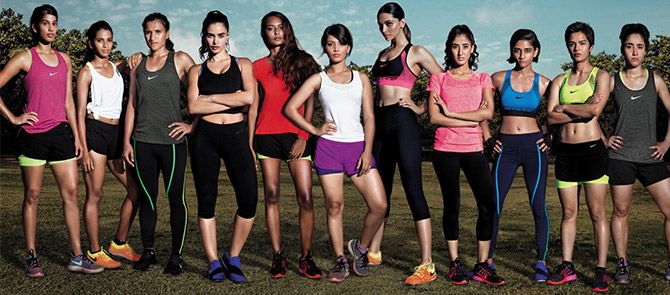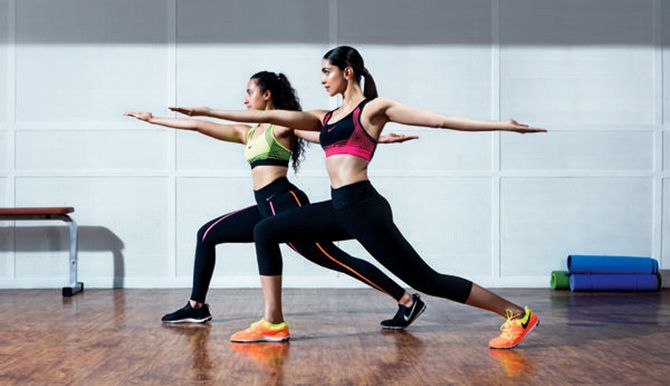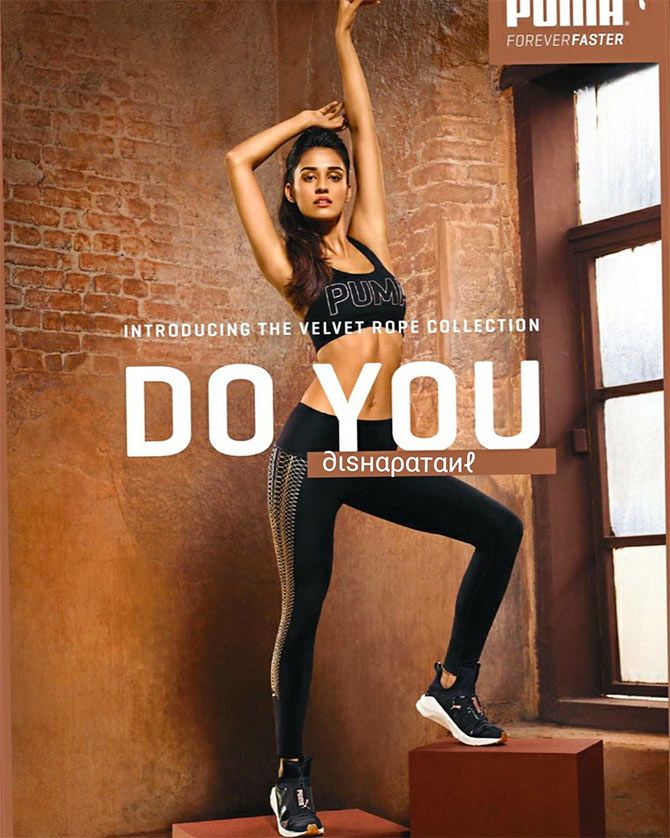Brands like Puma, Wildcraft and Woodlands are rewriting the marketing playbook to cater to women consumers.

For years sportswear brands have had their eyes trained on men.
Now women, with their growing engagement with the category and rising purchasing power, are forcing global and local labels to realign their gaze.
Some companies are using women’s voices to convey their brands’ messages. Others are aligning with women achievers in sports. The changing gender play is forcing everyone to take a fresh look at branding, product design and retail strategies.
Debosmita Majumder, head of marketing, Puma India, says, “We saw a potential in (that) category to grow way back in 2016. The brand has been capitalising through marketing and (targeted) offerings.”
Others are doing that too. “Today not only for the products, even in our campaigns we focus on women customers,” says Harkirat Singh, managing director, Aero Group, that owns the Woods and Woodlands brands says. He adds that 40 per cent of the products in his company are being designed for women.
While the Indian market for sportswear and gear for women is still a small percentage of the total, companies say that it is growing so rapidly that they would be foolish to ignore its potential.
Not just pink and shrink
For a long time men were the sole focus of sportswear marketers. Women bought from the men’s section. Or not at all.
Then came the ‘shrink and pink’ strategy, which meant offering the same designs and choices as men but, in smaller sizes and feminine colours.
“Typically, it used to be around 90 per cent of the store was for men. Now there is equal division, with a full floor catering to women as well as for men,” says Harish Bijoor, a Bengaluru based brand consultant.
Today women have more spending power and are more inclined towards sportswear, casual athletic wear and fitness and training gear say the companies.

Abhishek Ganguly, managing director, Puma India, speaking to the media last year stated that he expects good growth in the women’s wear category and the segment to cross 30 per cent of the business by 2018. Puma has roped in Bollywood actor Disha Patani as endorser and will soon launch a women-focused campaign in the country.
Both Reebok and Nike have done that in the past. A year ago, Reebok brought in Kangana Ranaut as brand ambassador and set up stores managed only by women.
Nike ran a campaign with women athletes and had Deepika Padukone helm its initiative to promote sports among women.
Women are more demanding, cost conscious and at the same time loyal consumers, says Singh and adds that both Woods and Woodland once got around 15-20 per cent of their business from women but today it is already around 35 per cent. “Women will bring in 50 per cent and then overtake men in the segment in the next one or two years,” he says.
Siddharth Sood and Gaurav Dublish, owners of Wildcraft, an Indian outdoor and adventure products brand, are bullish on women consumers too. Their brand is growing at 30 to 35 per cent. They see women accounting for close to 40 to 50 per cent of sales.
Fitness, fashion and social causes
The heightened attention from sportswear brands has come with increasing awareness and involvement in fitness and sports among women. Wildcraft is cashing in on this with a full-fledged women’s footwear range for ‘active lifestyle’ that includes boots for hiking/trekking/commuting. “We expanded our range for women in winter. That saw a lot of good traction,” says Sood.
He and Dublish say that in 2018 the brand will be more women-centric.
“Going forward I would see the tilt is going to be more towards women, with almost 60 per cent of the shop floor allocated to women’s wear and 40 per cent for men,” says Bijoor. With women on the radar, the companies say that design will play a bigger role in their scheme of things this year.
Puma’s Majumder says, “Just because we are sports fitness brand, we are not shying away from getting into fashion.” Puma says it sees itself as a brand that is not just aspirational, but also one that is fashionable and innovative.
By listening to what women want, Singh believes that brands can widen their scope of influence. It is a matter of changing the mindset and if brands can really do that, he adds, they will find that they can reach out to the entire family of consumers. Women are also more experimental with their tastes and that means that brands have to pay more attention to design and variety within the labels.
Most brands believe that marketing for women also means aligning the brand to a gender-related social causes. Puma for instance says that it wants to bring in independent voices to take up issues that women face on a routine basis. Such communication, Majumder believes has a certain amount of stickiness.
Earlier Reebok had used Kangana Ranaut to speak up against eve-teasing gender-related pay discrimination. Wildcraft too plans to go down the same route, a campaign around women’s issues is on the cards.













 © 2025
© 2025